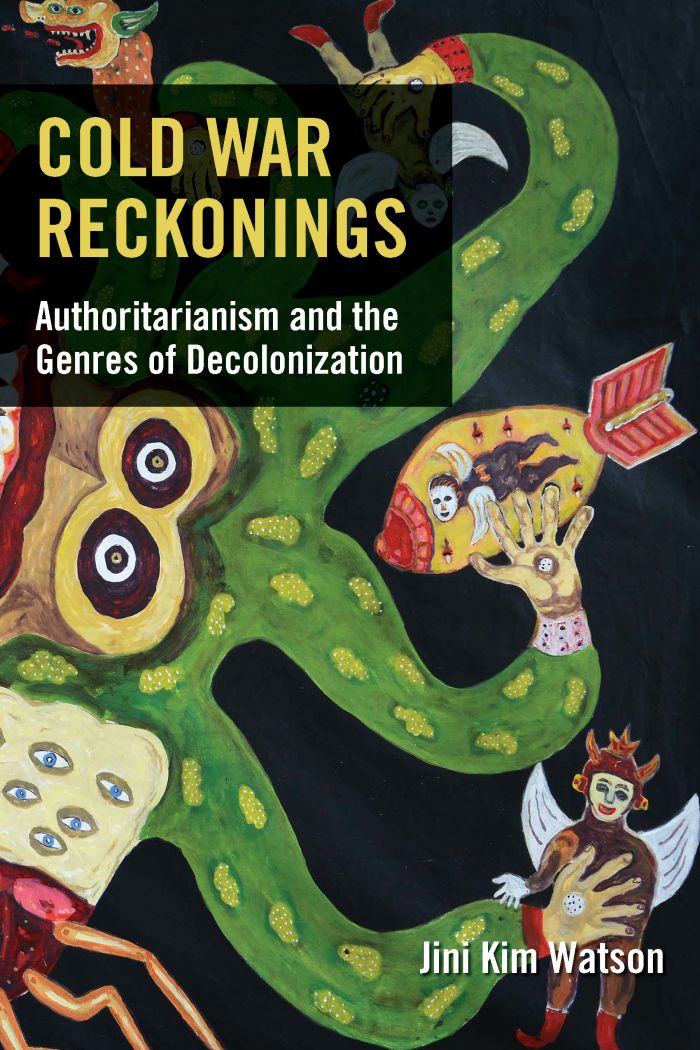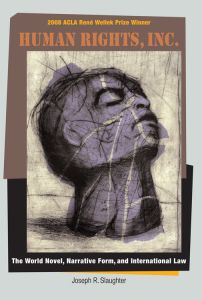Cold War Reckonings
Authoritarianism and the Genres of Decolonization

This book can be opened with

Honorable Mention, James Russell Lowell Prize, Modern Language Association
Honorable Mention, René Wellek Prize, American Comparative Literature Association
How did the Cold War shape culture and political power in decolonizing countries and give rise to authoritarian regimes in the so-called free world? Cold War Reckonings tells a new story about the Cold War and the global shift from colonialism to independent nation-states. Assembling a body of transpacific cultural works that speak to this historical conjuncture, Jini Kim Watson reveals autocracy to be not a deficient form of liberal democracy, but rather the result of Cold War entanglements with decolonization.
Focusing on East and Southeast Asia, the book scrutinizes cultural texts ranging from dissident poetry, fiction, and writers’ conference proceedings of the Cold War period, to more recent literature, graphic novels, and films that retrospectively look back to these decades with a critical eye. Paying particular attention to anti-communist repression and state infrastructures of violence, the book provides a richaccount of several U.S.–allied Cold War regimes in the Asia Pacific, including the South Korean military dictatorship, Marcos’ rule in the Philippines, illiberal Singapore under Lee Kuan Yew, and Suharto’s Indonesia.
Watson’s book argues that the cultural forms and narrative techniques that emerged from the Cold War-decolonizing matrix offer new ways of comprehending these histories and connecting them to our present. The book advances our understanding of the global reverberations of the Cold War and its enduring influence on cultural and political formations in the Asia Pacific.
Cold War Reckonings is available from the publisher on an open-access basis.
Cold War Reckonings is not only a sophisticated work of cultural criticism, but also an astounding articulation of political theory. Analyzing literary and cinematic texts alongside occasions like PEN regional meetings, Jini Kim Watson offers an altogether original story about the Cold War and decolonization in Asia, on the one hand, and about the relationship between capitalism and authoritarianism, on the other. The book profoundly shifts our understanding of the Cold War, arrested decolonization, postcolonial sovereignty, and the developmental state within capitalist modernity. In short, it offers a new theory of the state in general, and of the capitalist authoritarian state in particular.—Jodi Kim, University of California, Riverside
Jini Kim Watson’s Cold War Reckonings is an important, brilliant, and extremely engaging book that is beautifully written and bold and innovative in its arguments. Watson shows how the social and political promises of decolonization were derailed by the developmentalism that permitted certain sectors of postcolonial states to seize power by vowing ‘to fast-forward the time of national development.’ Treating third-world dictatorial regimes neither as unprepared political actors nor as dupes, Watson shows the overlapping interests between global capitalism and authoritarianism in some of Asia’s ‘capitalist success stories.’—Joseph Slaughter, Columbia University
Expansive in both temporal and geographic scope, this demanding yet engaging study offers a valuable revision of historical perspectives surrounding the long decades of decolonization in Southeast Asia from the end of WW II to the present... Highly recommended.—Choice
Note on Romanizations | ix
Introduction: Ruling Like a Foreigner:
Theorizing “Free World” Authoritarianism in the Asia-Pacific Cold War | 1
Part I: Authorities of Alignment, 1955–1988
1 Writing Freedom from Bandung to PEN International | 29
2 In the Shadow of Solzhenitsyn: Pramoedya Ananta Toer,
Kim Chi-ha, Ninotchka Rosca, and Cold War Critique | 59
Part II: Genres of Cold War Reckoning, 1997–2017
3 Separate Futures: Other Times of Southeast Asian Decolonization | 103
4 The Wrong Side of History: Anachronism and Authoritarianism | 133
5 Killing Communists, Transitional Justice, and the Making of the Post–Cold War | 155
Epilogue: Authoritarian Lessons for Neoliberal Times | 183
Acknowledgments | 199
Notes | 203
Bibliography | 253
Index | 271
Please click the link below to download the Open Access version of this book.
- Cold War Reckonings - epub




